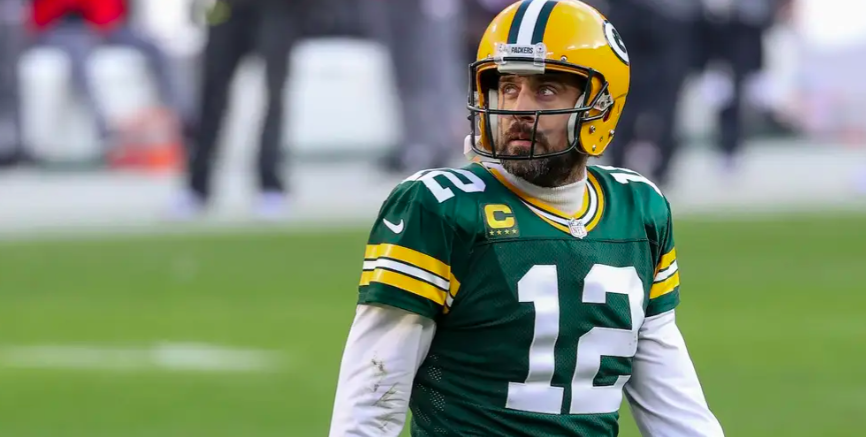Leadership and the cult of personality
Nicholas Wykes • May 06, 2021
What the Aaron Rodgers saga tells us about the psychology of leadership

Aaron Rodgers is an exceptional quarterback, he may be the most gifted to ever play the position, he is also the de facto leader of the Green Bay Packers and that may be a problem.
One year on from seeing his presumptive replacement drafted in the first round Rodgers announced his dissatisfaction
with everything happening around him in Green Bay, demanded a trade, threatened retirement, insisted on the firing of GM Brian Gutekunst and generally placed the fault for the disfunction at the door of the executive office.
Rodgers is a remarkable quarterback, 56,000 yards passing and a rating of 103 in 13 seasons as Green Bay’s QB compares favourably to Tom Brady’s 79,000 yards and 97 rating over 21 years and Peyton Manning’s 72,000 yards and 96 rating over 17 years. Brady has 7 super bowl wins compared to Rodgers 1. Received wisdom is that New England, and coach Belichick, are simply better team builders than Green Bay, and in this there is some truth. Belichick is one of the greatest to ever wear a headset, but there’s little argument that the Patriots often triumphed despite a less than stellar roster. The effect of modern leadership in a game defined by the slimmest of margins cannot be understated.
Rooted in football tradition and the iconography of Lambeau, Rodgers leadership appears outdated and questionable. Aaron Rodgers IS the great man at the heart of the cult of personality leadership, he is the heroic myth incarnate. As the best player on one of the best teams in the NFL, the Packers have an enviable roster of all-pro players, an outdated philosophy of leadership is costing his team championships, may already have cost them multiple super bowls.
Following World War II leadership was reduced to an individualistic model based on the traits of great men. Personality factors that led to a heroic definition and the idea that a particular breed, high on intelligence, masculinity, extroversion, and dominance defined leadership. It championed the idea of leadership as a noun, something that people HAVE, rather than something that people DO. And it overlooked the contribution of the team in the construct of leadership. This heroic myth is undone, upon inspection, by extremely low causality of outcomes to leadership attributes. Ultimately the cult of heroic leader as a philosophy unravels when no one set of characteristics reliably, and independently, predicts successful outcomes.
Up in Green Bay - where ghosts of Lombardi era greatness pervade everything – Rodgers HAS leadership, he does not DO leadership. In a culture where leaders are seen as different, separate, and superior through attribute and behaviour, Rodgers leaned in. Slighted by his draft day slide, a potential number 1 pick who fell to the Packers with the 24th pick, Rodgers displays the demeanour of a man whose purpose is to redress this inconvenient reality. He differentiates himself, stands apart as a generational talent with followers beholden to his vision and purpose. It worked for Lombardi, so the presumption is that the template must be valid. Research into leadership however tells us that cultivating a leader-follower distinction results in reduced motivation and in many cases a redirect of motivation from support to resistance.
A new psychology, incorporating characteristics of modern society, and by extension modern athletes, demands leaders who are not isolated and differentiated from their team but rather occupy a relational space, shaped, transformed and engaged by context and perspective. They need to be an intellectual and emotional force to create an inclusive movement. Two-time Super bowl winner Peyton Manning understood this only too well: “One of the things about football is, it’s a relationship business”.
Moving away from an individualistic model of leadership to a Prototypical model results in leaders less reliant on their own abilities and allows teams to identify with a collective purpose, contributing individual resources and emotional investment. This prototypicality is context dependent, no two circumstances or teams are identical, so leaders must reflect and represent this, and is more significantly correlated to producing positive outcomes than an adopted stereotype. Rodgers understands the need for authenticity: “I look for my opportunities, trying not to go outside my genuine realm, leadership has to be authentic”. However, his authenticity is in service of his own values and not reflective of the team he leads.
There are two functions of leadership – team identity maintenance, and achievement of goals – and they work in tandem, without the group identity being serviced the achievement of its goals is more challenging. Both functions derive from process rather than behaviour: A team’s identity is the product of its norms and values so for leaders to maintain it they need an authentic understanding of its core culture. Leaders have agency over their behaviour in respect of the teams’ identity and their vision must be aligned to advancing the collective cause if they want it to become a trusted behaviour worthy of followers. Team identity not only defines how leaders behave but is shaped and advanced by their behaviour in service of it.
Leaders need to be representative of their team often in a performative sense, it may need to be carefully choreographed to promote a sense of prototypicality. Manning understood this: “There are other players who were more talented, but there is no-one who could out-prepare me”, presenting both his humility and work ethic to actively shape his team’s collective values. Though definitions and values are often a matter of tension, leaders establish themselves as prototypes through of the content of these values, by constructing the category as a shared endeavour, establishing a valued role at the forefront through active and perceptual relationship management.
In the traditional leadership role that Rodgers has adopted, influence only exists where there is control over the allocation of resources and without that control the leadership model founders. Followers must want to follow. In creating and curating the cultural vision for the team the leader must live the identity and mobilise and direct that mobilisation towards desired team outcomes. Brady was unequivocal in living the required identity and mobilising his followers: ”I just love working hard. I love being part of a team. I love working towards a common goal”. Paradoxical arguments linger about Brady – on the one hand he was lifted by the efforts of his team (New England fielded a top 10 defense in 17 of his 19 seasons, and every Super bowl win), on the other that he was a force multiplier – he made the players around him better. Both propositions are true but the former would not occur without the latter.
Language skills, rhetoric, design, vision and social insight are critical in engineering a collective identity that is universally valued. Furthermore, the reality of the environment must objectify the vision, in professional sports especially the shelf life of a vision without tangible results is perilously short. The Green Bay Packers have lived the Aaron Rodgers experience with precious little return on lavish potential, so questions naturally arise as to the legitimacy of both vision and leader.
A modern leader is required to 1: reflect
– observe and listen in order to understand the groups culture and values, 2: represent
– behave in a way that truly reflects those values and advances the group cause, and 3: realise
– deliver, and be seen to deliver outcomes that matter to the group. Aaron Rodgers is upset that the Packers haven’t supplied him with what he needs, he believes that servicing his own values is in the best interests of the team simply by virtue of his transcendent talent. Throwing the football Rodgers is 4766-7332, being a leader 0-3.
Athletes, coaches, teams, clubs or businesses interested in developing effective, contemporary leadership structures to help optimise performance I would love to hear from you. Initial consultations and analysis is free of charge.
Share
Tweet
Share
Mail




